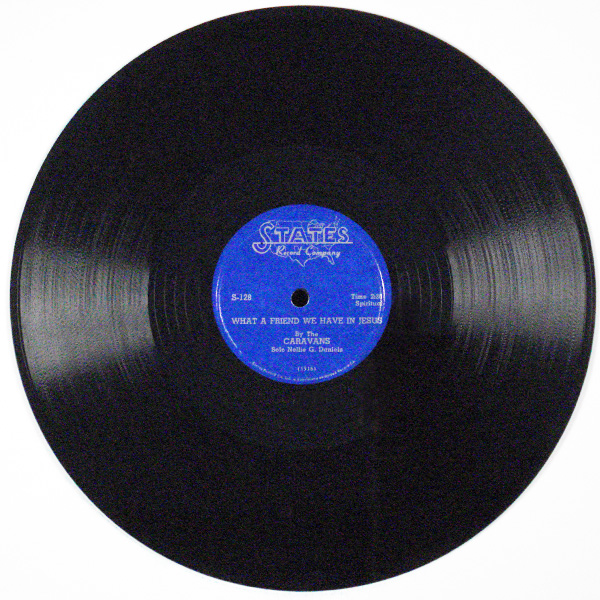|
The Caravans is an African-American Gospel group that was started by Albertina Walker. The group reached its peak popularity during the 1950s and 1960s, launching the careers of a number of artists, including: Delores Washington, Albertina Walker, Bessie Griffin, Cassietta George, Dorothy Norwood, Inez Andrews, Shirley Caesar, Josephine Howard, Rev. James Cleveland, and more. The group underwent numerous personnel changes between 1951 and 1961. 1962 to 1966 provided the Caravans with its most stable group member lineup, consisting of Washington, Walker, Caesar, George, James Herndon and Josephine Howard. The group also made frequent TV appearances during this time on shows such as TV's Gospel Time and Jubilee Showcase.
The Caravans were founded in 1947 under the name Robert Anderson and his Gospel Caravan by Robert Anderson in Chicago, Illinois to serve as Anderson's backing vocalists. The group consisted of Ora Lee Hopkins, Elyse Yancey, Irma Gwynn, Eward Robinson, the pianist, and Louise Overall Weaver as their organist. Their recordings between 1949 and 1951 were made under the names of Robert Anderson and Choir, Anderson Singers with Robert Anderson, Anderson Singers, and Robert Anderson and his Gospel Caravan.
In 1952, Gwynn left the group, a slight change of the group's name to Robert Anderson and The Caravans was made, and Nellie Grace Daniels and Albertina Walker joined the group. The group featuring Walker and Daniels under their new name made their first and only recording on April 18, 1952. During this recording session, a sequence of events happened, resulting in Robert Anderson parting ways with his background singers. Walker, Hopkins, Yancey, and Daniels recorded the remainder of their tracks, and adopted the group name of The Caravans simply by dropping Robert Anderson's name from the group name. Walker was the featured singer on the records that the first version of the newly emancipated Caravans made, which had the measured style typical of artists influenced by Roberta Martin.
That changed, however, as other singers joined the group, which retained the close harmonies and precise rhythms of the original group, but now allowed each member the opportunity to solo on alternating leads. At their height in the late 1950s the Caravans combined the energetic, agile alto of Shirley Caesar on songs such as "Swing Low, Sweet Chariot" with the powerful contralto of Inez Andrews on "Mary Don't You Weep, the dramatic soprano of Delores Washington, and the frenetic piano style from Eddie Williams, a friend of Washington."
Bessie Griffin joined the group in 1953, but left after a year. Cassietta George also joined in 1953 and stayed for two years, but returned in 1960 to stay for another year before rejoining in 1962 and staying for another four years. Norwood joined in 1955 and left in 1957, forming her own group, the Norwood Singers. Inez Andrews joined, at the suggestion of James Cleveland, the pianist and arranger for the group, in 1957 and left in 1962 to form her own group, the Andrewettes (aka: The Gospel Challengers of Jamaica, New York). Andrews returned in 1966, only to depart again and go solo in 1967. Shirley Caesar joined the Caravans in 1958 and left to pursue a solo career in 1966.
|













